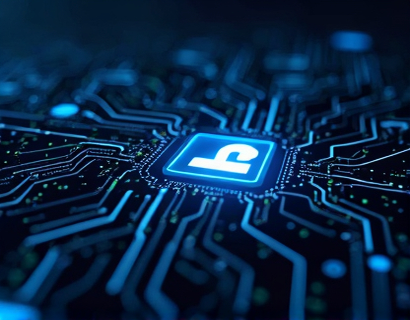Unlocking the Potential of AI-Powered Knowledge Assistants: A Focus on Specialized Insights into Kernel Services with Child-Friendly Access
In the rapidly evolving landscape of technology, the integration of Artificial Intelligence (AI) into various sectors has opened new avenues for knowledge dissemination and learning. One such innovative application is the development of AI-powered knowledge assistants designed to provide specialized insights into complex fields like kernel services, while ensuring accessibility and safety for users of all ages. This article delves into the intricacies of such platforms, highlighting their benefits, features, and the importance of catering to both educational and professional needs.
The Role of AI-Powered Knowledge Assistants in Education and Professional Development
AI-powered knowledge assistants represent a significant leap forward in how we access and interact with information. These advanced chat interfaces leverage machine learning algorithms to deliver accurate, verified, and contextually relevant data to users. In the context of kernel services, which are fundamental to operating systems and system management, such tools can bridge the gap between complex technical details and user understanding.
For educational institutions and families seeking child-friendly AI solutions, these platforms offer a unique opportunity to introduce young minds to specialized knowledge in a safe and engaging manner. The ability to tailor content to different age groups and learning levels ensures that both children and adults can benefit from the same resource, fostering a learning environment that is inclusive and enriching.
Specialized Insights into Kernel Services
Kernel services form the backbone of any operating system, managing system resources, hardware interactions, and process execution. Understanding these services is crucial for system administrators, developers, and anyone involved in IT infrastructure management. An AI-powered knowledge assistant can provide detailed explanations, step-by-step guides, and real-world examples to demystify these concepts.
For instance, when a user inquires about the boot process, the AI can break down the steps involved, from the initial power-on signal to the loading of the kernel and initialization of system services. This level of detail, presented in an accessible format, helps users grasp the intricacies of kernel operations without getting overwhelmed by technical jargon.
Content Verification and Accuracy
One of the key advantages of using an AI-powered knowledge assistant is the emphasis on content verification. In a field as critical as kernel services, accuracy is paramount. The AI system is designed to cross-reference information from multiple trusted sources, ensuring that the data provided is up-to-date and reliable. This feature is particularly valuable for professionals who rely on precise information to make informed decisions.
Moreover, the platform can highlight the sources of information, allowing users to verify the data independently. This transparency builds trust and credibility, making the AI assistant a valuable resource for both novices and experts in the field.
Child-Friendly Access and Educational Value
Catering to children and students requires a thoughtful approach to content delivery. The AI-powered knowledge assistant includes a specialized mode that simplifies language, uses visual aids, and incorporates interactive elements to enhance learning. This mode ensures that the content is not only accurate but also engaging and easy to understand.
For example, when explaining the concept of device drivers, the AI might use analogies and simple diagrams to illustrate how these drivers act as intermediaries between the operating system and hardware devices. Such approaches make complex topics more approachable and memorable for young learners.
Additionally, the platform can include quizzes, games, and interactive challenges to reinforce learning. These activities not only make the learning process fun but also help in retaining information. Teachers and parents can use these features to supplement traditional educational methods, providing a comprehensive learning experience.
Ensuring a Secure and Enriching Learning Environment
Safety and security are paramount when it comes to online learning, especially for children. The AI-powered knowledge assistant is designed with robust security measures to protect user data and ensure a safe browsing experience. This includes encryption, strict access controls, and regular security audits.
Furthermore, the platform adheres to strict content guidelines to filter out any inappropriate or harmful information. This creates a trustworthy environment where users can explore and learn without concerns. For educational institutions, this level of security is essential in meeting regulatory standards and parental expectations.
Collaboration with Educational Institutions
The development of AI-powered knowledge assistants is often a collaborative effort involving educational institutions, technologists, and subject matter experts. These partnerships ensure that the content is not only technically accurate but also aligned with educational curricula and learning objectives.
Schools and universities can integrate these tools into their teaching frameworks, using them as supplementary resources to enhance classroom instruction. The AI assistant can answer student questions, provide additional explanations, and offer personalized learning paths based on individual needs and progress.
Benefits for Families and Lifelong Learning
Beyond the educational setting, AI-powered knowledge assistants offer valuable resources for families looking to expand their knowledge in a supportive and interactive way. Parents can use these tools to better understand complex topics alongside their children, fostering a culture of lifelong learning within the family.
For individuals pursuing self-directed learning or professional development, the AI assistant serves as a reliable companion. Whether it's exploring advanced kernel tuning techniques or understanding the latest trends in system security, the platform provides comprehensive and up-to-date information.
Conclusion
AI-powered knowledge assistants represent a powerful tool for democratizing access to specialized knowledge, particularly in fields like kernel services. By ensuring content accuracy, providing child-friendly access, and maintaining a secure learning environment, these platforms empower users of all ages to enhance their understanding and skills. As technology continues to evolve, the role of such assistants will become increasingly important in both educational and professional contexts.









































